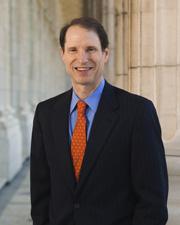US Senator
Ron Wyden
Biography
Ron Wyden is a prominent American politician currently serving as a United States Senator from Oregon, where he has held office since February 6, 1996. Born on May 3, 1949, in Wichita, Kansas, Wyden grew up in Palo Alto, California, and earned his Bachelor of Arts degree from Stanford University in 1971, followed by a Juris Doctor degree from the University of Oregon School of Law in 1974. Before entering the Senate, he served as a U.S. Representative for seven terms from 1981 until his appointment to the Senate.
A member of the Democratic Party, Wyden has been influential in various legislative committees, including his roles as chair of the Senate Finance Committee and a key member of the Energy and Natural Resources Committee. His long career in politics has focused on issues such as health, energy, natural resources, and financial regulation. Known for his advocacy of environmentally sustainable policies, he has worked towards advancing legislation to protect the coastline against oil drilling and to enhance public lands.
Wyden has sponsored and co-sponsored a range of significant legislation that illustrates his commitment to social justice, healthcare access, and environmental protection. Notably, he co-sponsored the West Coast Ocean Protection Act of 2023 (SB22), which aims to prohibit oil and natural gas exploration off the coasts of California, Oregon, and Washington. This measure reflects his strong stance on preserving coastal ecosystems against fossil fuel exploitation.
In the health policy arena, Wyden has been involved in significant legislation such as the Bipartisan Health Care Act (SB891), which focuses on pandemic preparedness and extends crucial health provisions to improve healthcare delivery. His work on the Insurance Fraud Accountability Act (SB976) demonstrates his focus on consumer protections in healthcare and insurance.
Wyden's political leanings can be characterized as centrist to progressive, as demonstrated by his support for environmental safeguards, healthcare reforms, and social equity initiatives. He is a strong proponent of environmental sustainability, evidenced by his backing of the Oregon Recreation Enhancement Act (SB888) and efforts to improve public lands management. His legislative decisions frequently reflect a commitment to balancing economic growth with environmental stewardship, showcasing a progressive vision for Oregon and the nation.
Wyden's influence extends beyond legislation; he has maintained a reputation for bipartisanship, often collaborating with colleagues across party lines to achieve legislative goals. His commitment to transparency and accountability in financial matters is evident through his role on the Finance Committee, where he has supported measures to enhance tax equity and economic growth.
Notably, Wyden has a personal background that includes a family connection to public service and community involvement, which may inform his legislative priorities. He is married to Nancy, and they have three children. His advocacy for working families and social equity is often driven by a desire to create a more inclusive society for future generations.
Thus, Ron Wyden stands as a significant figure in contemporary American politics, utilizing his long-standing experience and commitment to public service to influence vital issues ranging from environmental protection to healthcare reform. His legislative actions reflect both his progressive values and a pragmatic approach aimed at fostering bipartisan cooperation and effective governance.
